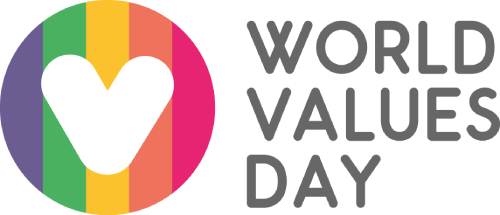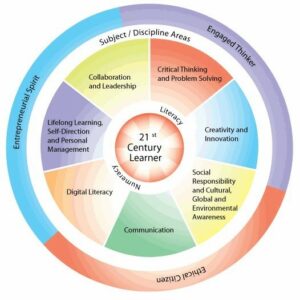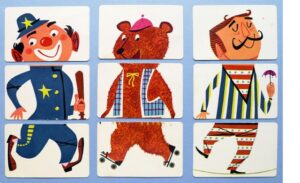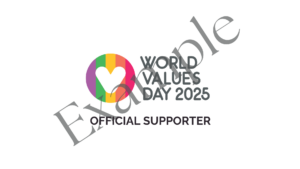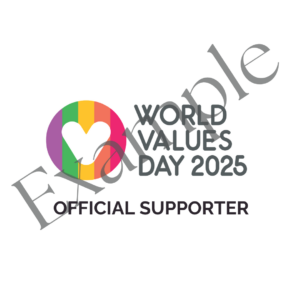By Jessica Ball
“It is a process which explores an unusually wide range of human experience: our closely held values; the nature and intensity of emotions; the patterns of our thought processes; the function of memory; the importance of inherited cultural myths; and the manner in which our neurophysiology structures moment-to-moment experience…Such an inquiry necessarily calls into question deeply held assumptions regarding culture, meaning and identity.”
-David Bohm, On Dialogue
Following on from a revealing taster dialogue session with members of the UK Values Alliance at the end of 2017, we decided that dialogue is an ideal practice to explore, think about and reflect upon personal and shared values. This year we will have hosted 4 dialogues, preceding World Values Day, exploring values in relation to the self, others and the world around us. They have been enlightening and thought provoking as well as creating spaces for deeper connection and understanding. These dialogues are also the inspiration for the downloadable resource, available on the World Values Day website, that provides instruction and guidance on how to host a values-based community dialogue.
The practice of dialogue that we have been working with throughout the year and in the resource is Bohm Dialogue. David Bohm (1917-1992) was a theoretical physicist, most known for his theory of the implicate and explicate order. In his later life he developed a philosophy of dialogue which grew out of his observation that one of the reasons for the many crisis’s we face as a global society is fragmentation. Our societies, organisations and even ourselves are fragmented; we have lost sight of the whole and that all livings things are interconnected, interdependent and interrelated.
As Bohm’s contemporary Einstein famously said, “we cannot solve our problems with the same thinking we used to create it.”
This is why Bohm recognised that what we so desperately need is new thinking, and that we struggle to arrive at this new thinking because we do not create the time and space to come together and meet in a meaningful way or create the conditions in which we can allow new thinking to occur. Values are so intrinsic to a dialogue practice and combined they provide us with a potentially powerful tool for positive change.
As local and global communities, we are being held back by divisive, argumentative and accusatory ways of communicating. Dialogue presents another way of communicating with each other; allowing us to connect through meaning and values and to generate new ways of thinking about the people and the world around us.
In today’s complex times we need to come together in dialogue in order to listen, connect, understand, learn and grow. As communities we find time and space to come together and think and act on things that are important to us. Communities share common interests, and they give us a sense of belonging and participation. We can also find this sense in dialogue together.
We often get stuck; stuck saying the same things, thinking the same thoughts or acting the same way because we can’t get beyond our traditional modes of communication: those of monologue, debate and discussion, to arrive at a deeper level of meaning and understanding. Dialogue allows us to reach this deeper level, and create new ways of thinking by sharing meaning together. This shared meaning has been abundant in our dialogue series as we went on a journey of values and dialogue.
In our first dialogue we explored and shared meaning around personal values: what they are, where they come from, how we action them, what can challenge them and what meaning they bring to our lives. It generated some interesting thinking and areas for further exploration such as whether value based behaviour is a choice and what can compromise it, often creating the value-action gap we are striving to close; and what are the small things that we can do to live our values, starting from smiling at people in public places and asking those who serve us daily, ‘how are you?’
“We are relating to each other at a very deep level and that’s a very powerful thing” -dialogue participant
In our second dialogue exploring values and others one of the topics we arrived at was litter, which was given as an example of behaviour of others that is hard to understand and tolerate. Why would someone choose to litter our shared environment, and equally what drives others to pick it up when it is not theirs. This proved a very good example and raised two further points around the values of acceptance and understanding. Some felt that acceptance of the person who had littered was part of understanding the human condition; we are all doing the best we can, with what we have. Others raised concern that an acceptance of people dropping litter was parallel to doing nothing and becoming apathetic. For some acceptance means non-action, for others acceptance leads to action; for is it possible to encourage the person that litters to stop littering if we show them anger and aggression or if we meet them with acceptance and love.
“There can’t be understanding, without understanding.” – dialogue participant
In our third dialogue we set out to explore values and how they influence our relationship with the world around us. One powerful reflection by a participant was on the distinction between operational values that drive day-to-day behaviour and idealistic values that might help him aspire to and become to the ‘next best version of myself,’ and asked how we could support the tension between ‘who I am today and who I could be tomorrow.’ The ability to see ourselves and our values as dynamic and evolving allows us to face challenging situations or people with compassion and create the space and conditions for change. The question of whether ‘bad people’ have values arose in the dialogue and it was suggested by some that it is not a case of judging people as ‘good’ or ‘bad’ but instead meeting them with understanding, empathy and compassion. When we become focused on the lack of values in others, we can also lose touch with our ability to respond from a place of our own personal values. If we want others to change we need to ask ourselves whether they are likely to do so when met with judgement and blame, or with love and understanding.
“Values are in reality all defined by how you interact with other people and the way you behave in the world.” – dialogue participant
In the dialogue series we have experienced first-hand some of the benefits to individuals participating in a dialogue, which can be; to feel valued by participating, being listened to, seen and accepted; to understand themselves better by reflecting upon and speaking their thoughts; and to understand others better by listening without judgement, to different points of view and other people’s experiences.
Equally there are collective benefits to communities that take part in dialogue, such as, to be able to move beyond conflict and challenges by uncovering assumptions and unconscious biases; to gain insights and spark ideas that help form solutions that benefit everyone; and to improve relationships by building trust, empathy and understanding.
If you feel part of a community it is likely that there is something that binds you together, through common interests, values, and a sense that it is important enough for you to care about and give your time to. When something is important to us, very often we have different reasons for its importance. Without good communication it can be challenging to express this importance within the group, or to people outside of the group. This is why we need dialogue: in the same way that possessing a strong sense of values can strengthen community, being in dialogue together can also strengthen community.
We tend to jump to defend what is important to us. When we defend an opinion we inhibit our ability to be able to ‘think together’ because our energy and focus is going into defending, we become closed. In dialogue we need to be able to stay open, noticing what is occurring in us, whilst bringing attention to what is being said by others and the group. We all have things that are important to us, and these are shaped by past experiences as well as familial, cultural and social framing. Therefore, it is important to realise that very often our opinions are intrinsically tied up with our sense of self and identity. We fear that if our opinions are challenged, our very sense of being and who we are is challenged also. Through dialogue we are able to see ourselves as a unique part of a whole community, to understand that what we see in others, whether we like it or not, is also in us. We welcome all thoughts and feelings because to dismiss, ignore or exclude something or someone is to fragment the community, and deny something, if only a potentiality, that is also within us.
If you are part of a community and have a desire to think about the potential of your community and what you would like to apply it to, to improve the lives of yourself and others, then please use our values-based community dialogue resource, and let us know what meaning you create together!
Jessica Ball uses Bohm dialogue and creative writing and other mediums in workshops to help people explore culture and values, gender equality and sustainability. She also teaches the principles and practice of Bohm dialogue for groups and organisations to improve communication and participation, build trust, and increase awareness and understanding.
